Annamaria Apelt finished high school in 2019 and shortly after that she found herself in Budapest, as part of her social voluntary year. Now, nearly two years later, she is back home in Munich, about to go to university and become a teacher. In her free time she takes Hungarian language lessons, trying to understand all the grammar and suffixes. She volunteered with the Refugee Ministry of RCH, supporting the daily operation of RCH's implementing partner, the Kalunba Social Services Non-Profit.
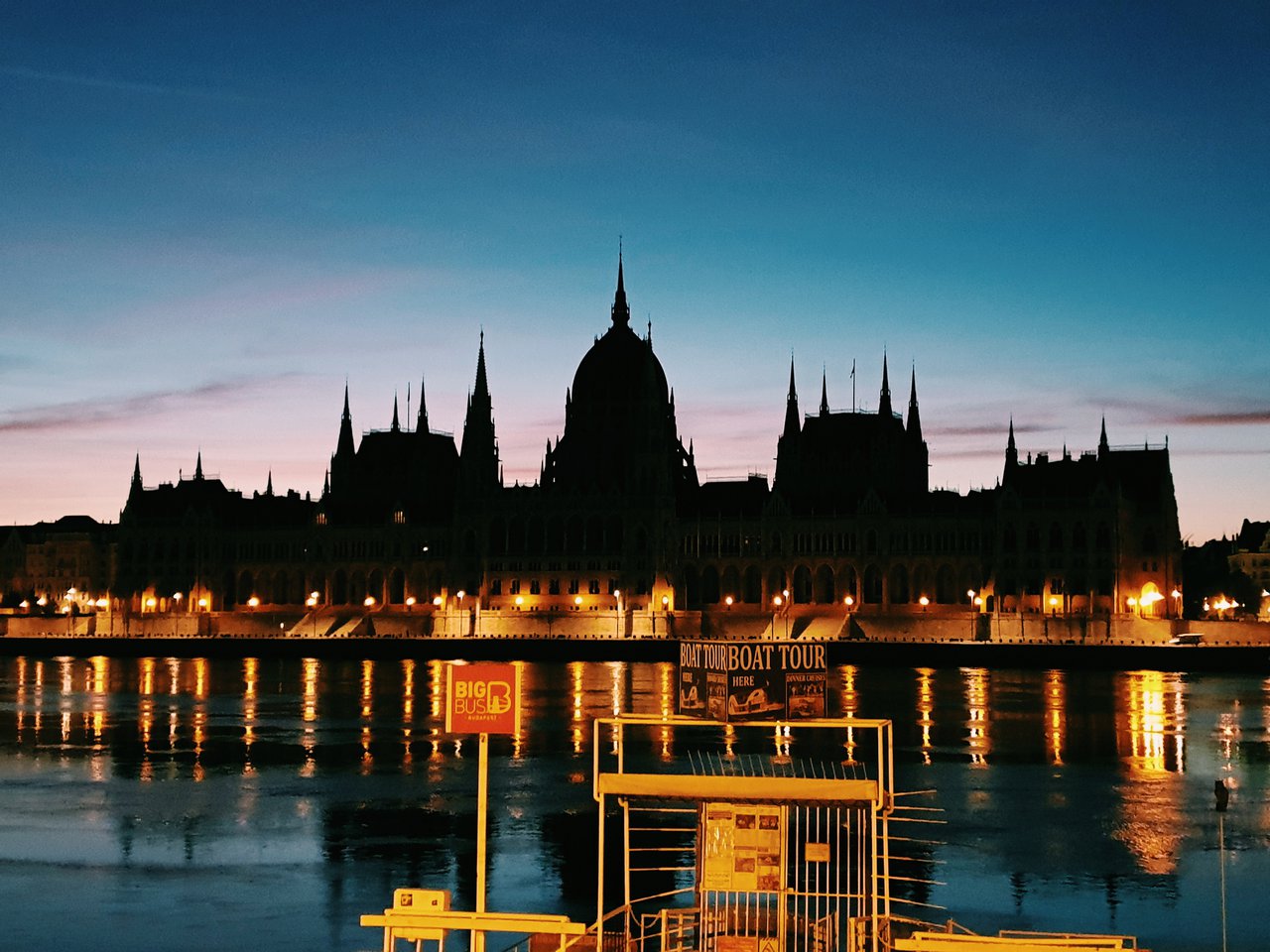
The City
Long, incomprehensible words sound through the loudspeakers on the train, which is slowing down. I understand next to nothing. The only word I do understand is pályaudvar, which means train station. Just as well I have to get off at the final stop and don’t have to understand any of these other words the woman throws at me through the speakers. After a six-hour journey, I finally arrive in Budapest. I heave my heavy suitcase off the train and drag it through the imposing hall of the keleti pályaudvar. Outside, the dry air of the Hungarian summer hits me, the sun shines unhindered from the sky and bathes the city in a play of light and shadow.
So this is it, the first day of 334 days. Eleven months in Hungary, eleven months of voluntary social service in a foreign country.
I immediately make my way to the office of my organisation. It is not far from the station, I walk. The bumpy pavements off the main road give my suitcase a hard time, and halfway there it loses a wheel. I stop at the next corner, in the shade, and take a deep breath. The first day is off to a great start. I'm on my own, I left the child with my parents on the platform in Munich, and as an adult I got off in Budapest. So it's time to tighten my shoulders, put the wheel back on and keep running.
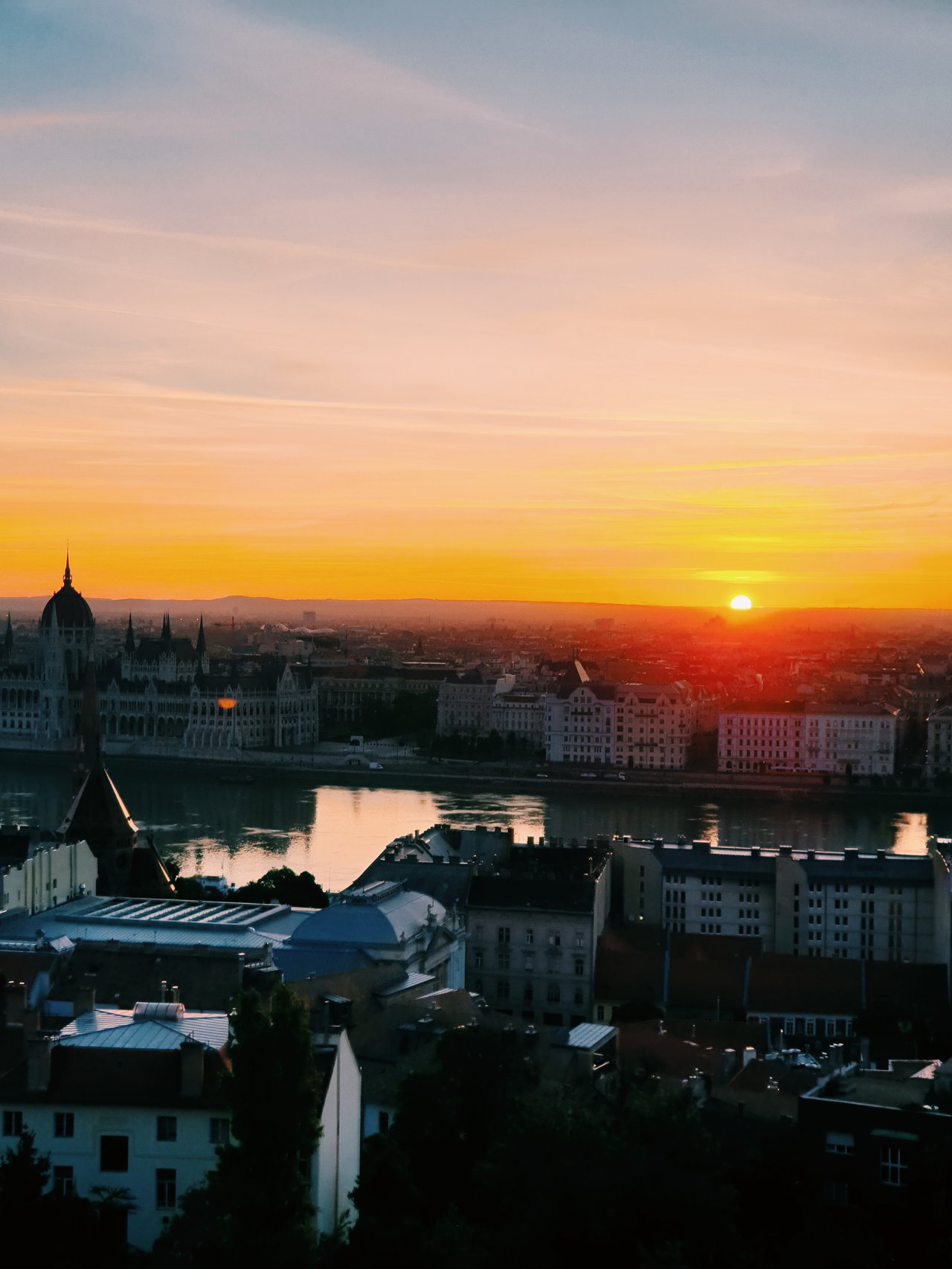
In the cool rooms of the organisation, I meet the other volunteers for the first time. Nici, with whom I will share a room for the next year, and the two boys with whom we share the flat. Oriana, with whom I will be working. There is not much time to get to know each other, because the afternoon is full of one organisational topic after another. When will the language course take place? When are we going on the first seminar? And how does it work with the salary?
The sun slowly disappears behind the houses as we all drag our luggage back onto the uneven pavements and make our way to our new home. With my three new flatmates, I move into the two-room flat, which is in a large new building complex a little outside the centre.
Completely exhausted, Nici and I fall into our beds and are asleep before the sun has completely set.
In the first two weeks we have time to explore the city before we get to know our workplace for the first time. Without even glancing at our guidebooks, we plunge into the hustle and bustle of Budapest.
The old houses in the style of historicism characterise the townscape and allow a small journey back in time. But it is not only the view from the outside that impresses, a look behind the façade is also worthwhile. The inner courtyards of the houses are usually even more impressive. The sun's rays stretch along the elaborately decorated railings and columns and try to illuminate even the last shadow.
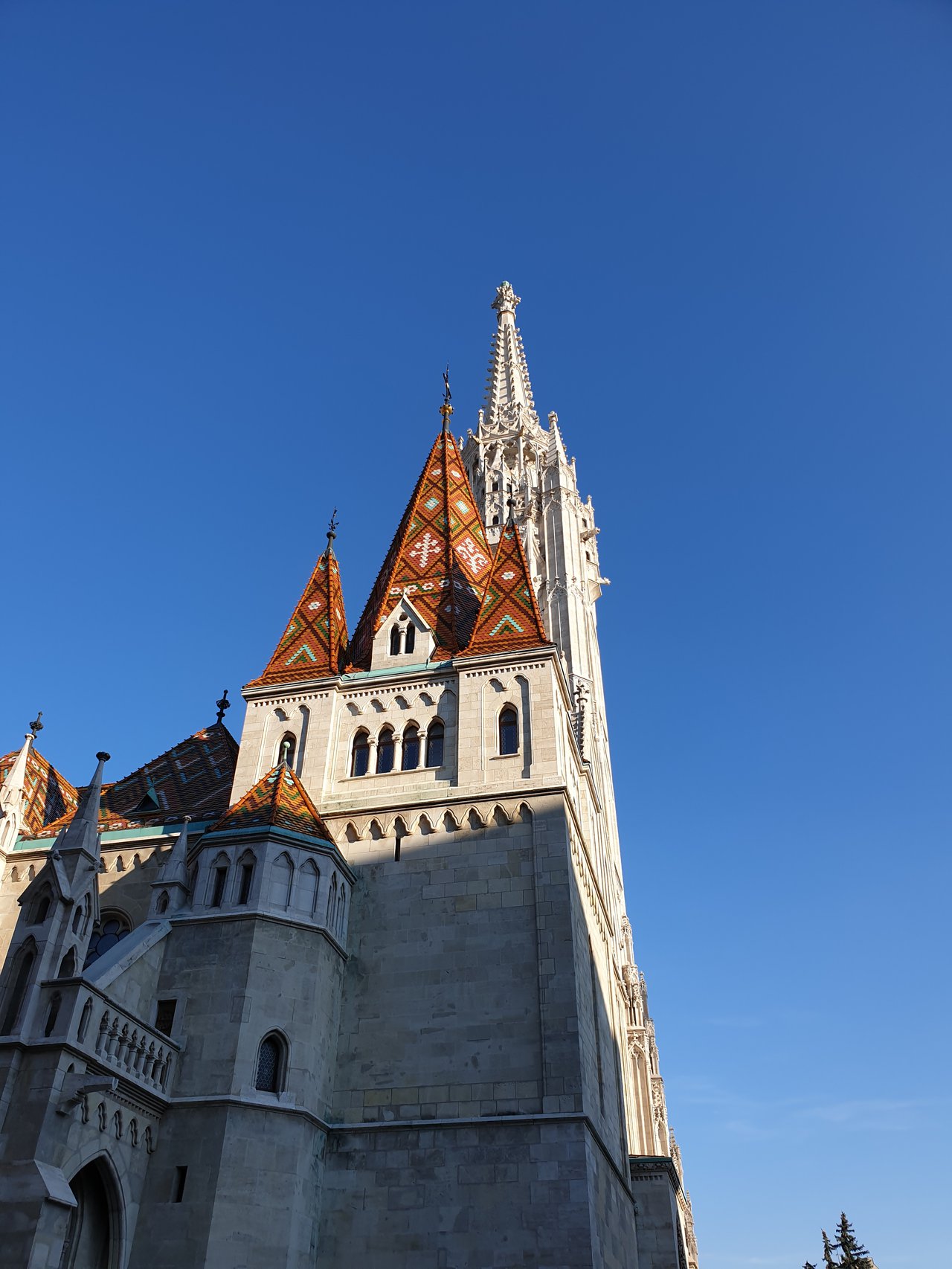
We spend the warm evenings by the Danube, which runs once through the city from south to north and separates the two districts of Buda and Pest. On the Buda side, the castle glows, illuminated by thousands of lights, silently telling of past sieges and fallen monarchies. Opposite it, on the Pest side, stands the imposing Parliament, no less illuminated. The two face each other, monarchy and democracy, separated only by the Danube. The lights of the two dance in the waves of the water until they blur into one big sea of lights. The many luminous bridges connect the two seemingly irreconcilable sides.
We use the last days of summer to watch the city wake up. Early in the morning, we climb the small hill to the Fishermen's Bastion next to the castle and watch the sun rise behind the parliament, gently casting the first light of day over the still sleeping city.
The dark season is already upon us, but Budapest doesn't lose its glamour at all. On the contrary, you could be forgiven for thinking that the city is unpacking even more lights to dispel the darkness. The trams are decorated with fairy lights and the streets shine. From Gellért Hill you can see the whole city in its Christmas splendour, but Andrássy út, the biggest street in Budapest, is probably the brightest.
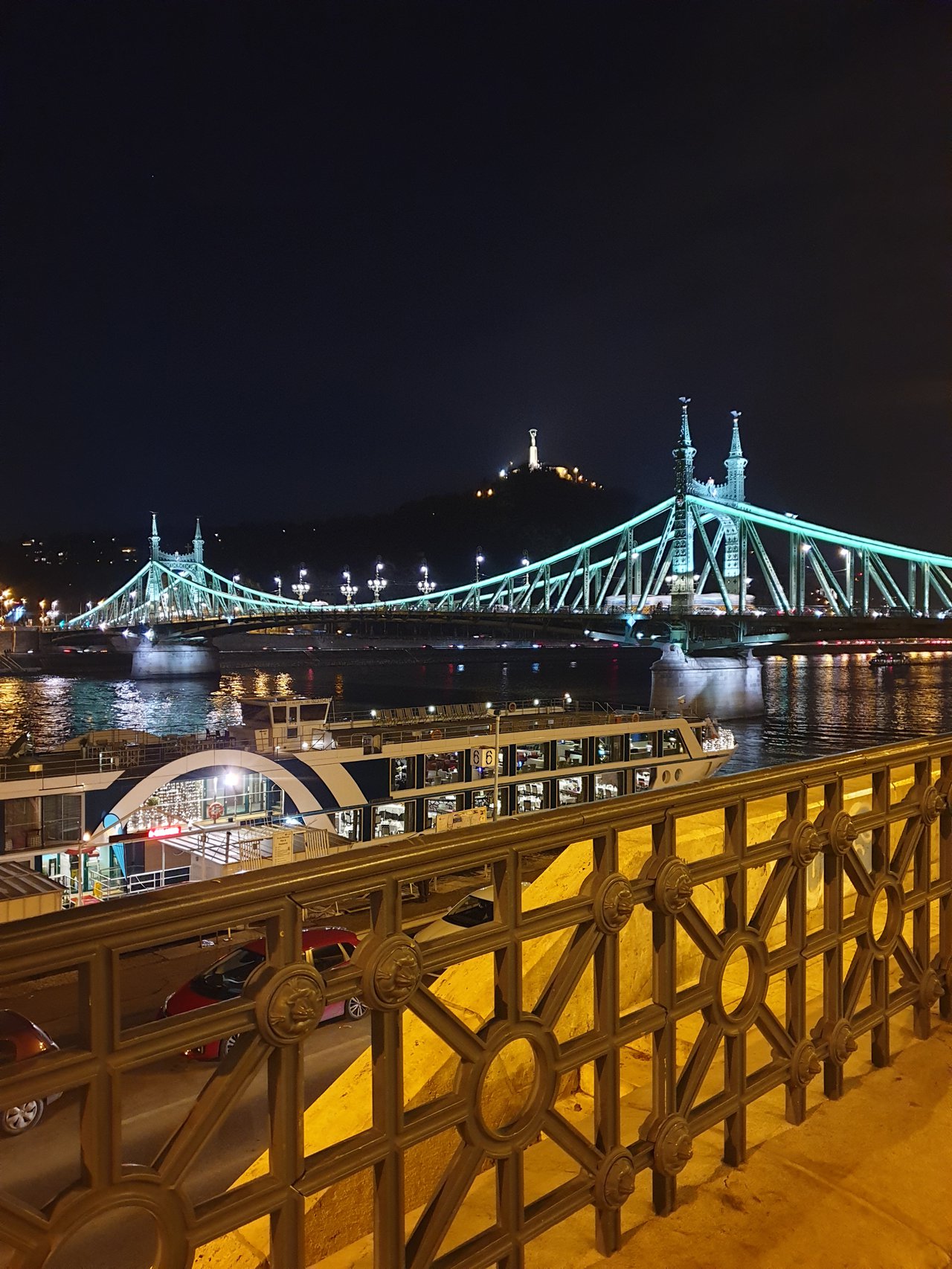
The Work
Kalunba is a community centre that supports refugees in Budapest. The Community Centre belongs to the Reformed Church Hungary, which has been running integration projects for several years. Kalunba offers Hungarian language courses, provides flats and helps with the financing of rent, assists in dealing with authorities and official difficulties.
Refugee work in Hungary is anything but easy. Until July 2018, large parts of the work were financed through EU funding from the so-called AMIF (Asylum, Migration and Integration Fund). Shortly after the last public tender for the funds in December 2017, the government withdrew the tender. Since then, the Reformed Church Hungary has lost funding totalling over one million euros in refugee work.
As a result, Kalunba had to stop some important integration projects and half of the staff was laid off.[1]
The mood in the country is increasingly tense and refugee organisations are coming under more and more pressure. Not to mention the situation at the border and in the so-called transit camps.
At the beginning, Oriana and I only notice a little of it. We are busy finding and clearly defining our own tasks. For the first few days it is difficult to find our way into a well-rehearsed team as 'the new ones', the normal business takes its course at high speed and we run behind. But from the beginning we are welcomed with open arms and after the first week we belong to the Kalunba family.
Oriana and I have many tasks, from looking after the children to tidying up the kitchen, everything is involved.
Every morning, Kalunba receives a food donation from the big supermarket chains that can no longer sell the fruit and vegetables that are still good. Our clients can take it from us free of charge.
In addition to the food donations, we also regularly receive clothing donations from private individuals or other organisations. These are also provided free of charge.
We look after small children whose mothers are taking part in the language course, pick up older children from kindergarten or school, give extra tuition to high school graduates whose German Abitur is just around the corner.
We have found our rhythm, and so we get to see more and more how difficult the refugee work is.
[1] Metzger, Isabel (2019): Flüchtlingsarbeit in Ungarn: Fördergelder in Millionenhöhe fallen weg. https://www.reformiert-info.de/Fluechtlingsarbeit_in_Ungarn_Foerdergelder_in_Millionenhoehe_fallen_weg-20951-0-8-1.html (As of: 07.03.2021)
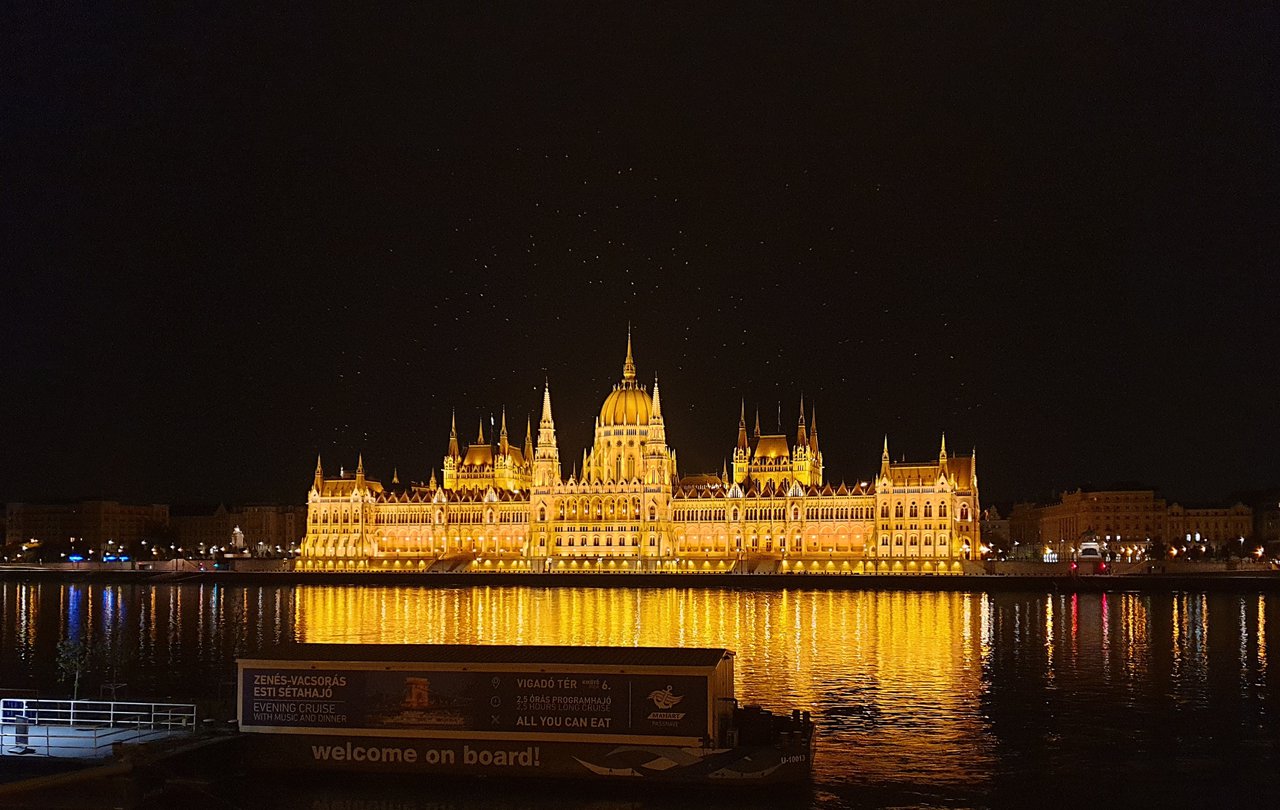
We volunteers don't have much insight into the organisational and financial processes. Only the expression on our boss Dóra's face often speaks volumes. Sometimes it is bright and open, suggesting that there has been good news and success. But mostly there is a shadow in her eyes because the bright spots are rare.
A demonstration by supporters of the Fidesz party makes the tension visible. They are not demonstrating against refugees, but against the newly elected, green-liberal mayor of Budapest.
With each passing minute, more people gather on the small square directly in front of Kalunba's office. Dóra locks the door, lowers the blinds - out of fear. All the clients who are there in the Community Centre must wait until the crowd disperses.
For some clients, Hungary may be the light at the end of an endless tunnel. But we also get that for some, Budapest is just a signal light at the edge of eternally long and crossed tracks. In Kalunba they all come together, the stories of lights in faraway countries that have long since gone out, the suffering, the long dark road that lies behind them.
The Life
The words feel unfamiliar at first, they lie across the mouth and don't really want to come out, the intonation is still bumpy. Hungarian is not an easy language; everything sounds the same and yet fundamentally different. Every Monday evening, we have two hours of lessons, and after a few weeks the first sentences, repeated over and over, no longer sound so complicated. Until the next long word stares at you from the sheet of paper.
But these few sentences are enough for everyday life. Now it's just a matter of organising this everyday life. When and, above all, what do I buy? How much forint was one euro again - and is 3,000 forints a lot?
The flat-sharing issues are quickly resolved in a meeting and everyday life together takes its course. Whether it goes more or less smoothly remains to be seen.
Nici and I live together in one room from now on and get along very well from the start. We often talk late into the night about work, politics, life, the future.
On the cold winter evenings, we listen to music together and do puzzles for hours.
With the first warm summer days the desire to travel comes. To get out of the city, explore the country in all directions and breathe different air. We drive to Eger, one of Hungary's oldest towns northeast of Budapest. Everything looks so much different from the capital, the houses are smaller and brightly painted, time passes more slowly.
We drive to Gyöngyös and breathe the fresh air, enjoy the view from the mountains to the endless green meadows and hear nothing but the silence of nature.
We drive to Gödöllő, an outskirt of Budapest and visit the Baroque castle, wandering through the old rooms of Empress Elisabeth of Austria and Queen of Hungary. Gödöllő Castle was the Empress's favourite palace and walking barefoot across the lawns of the spacious garden, lined with colourful blooming flowers, you can understand.
The sunlight refracts in the gentle waves of the Balaton, the summer lets its relentless heat move over the country. Almost every weekend we take the train for an hour and a half from the unbearably hot city to the largest inland lake in Central Europe.
Each time to a different beach in a different place.
We enjoy the sun, the water, the light-heartedness that only summer brings.
Among all the conversations of the beachgoers, the wind also blows a few scraps of words in German to my ears. It takes me a moment to classify the words, but I don't want to understand them yet. After a year in Hungary, the Hungarian language seems closer than my own mother tongue. After a year of living in Hungary, you feel a bit at home, but the few scraps of words from this stranger make you feel foreign again.
As summer approaches, the end of my voluntary year draws nearer. Once again, all the volunteers go to a seminar with the coordinators of the organisation. The third and last. We think back to the first seminar, when we were all still strangers, slowly getting to know each other. And now we have almost become a small family. Sixteen volunteers from all over Europe, thrown together and welded together. Now we are lying here in a garden in Gara, on our last seminar evening, looking at the stars. There are so many of them, and here in this small village in the south of Hungary they shine so brightly and clearly that you think you could count them. They shine so differently from the many different lights in the big capital, which make the stars invisible.
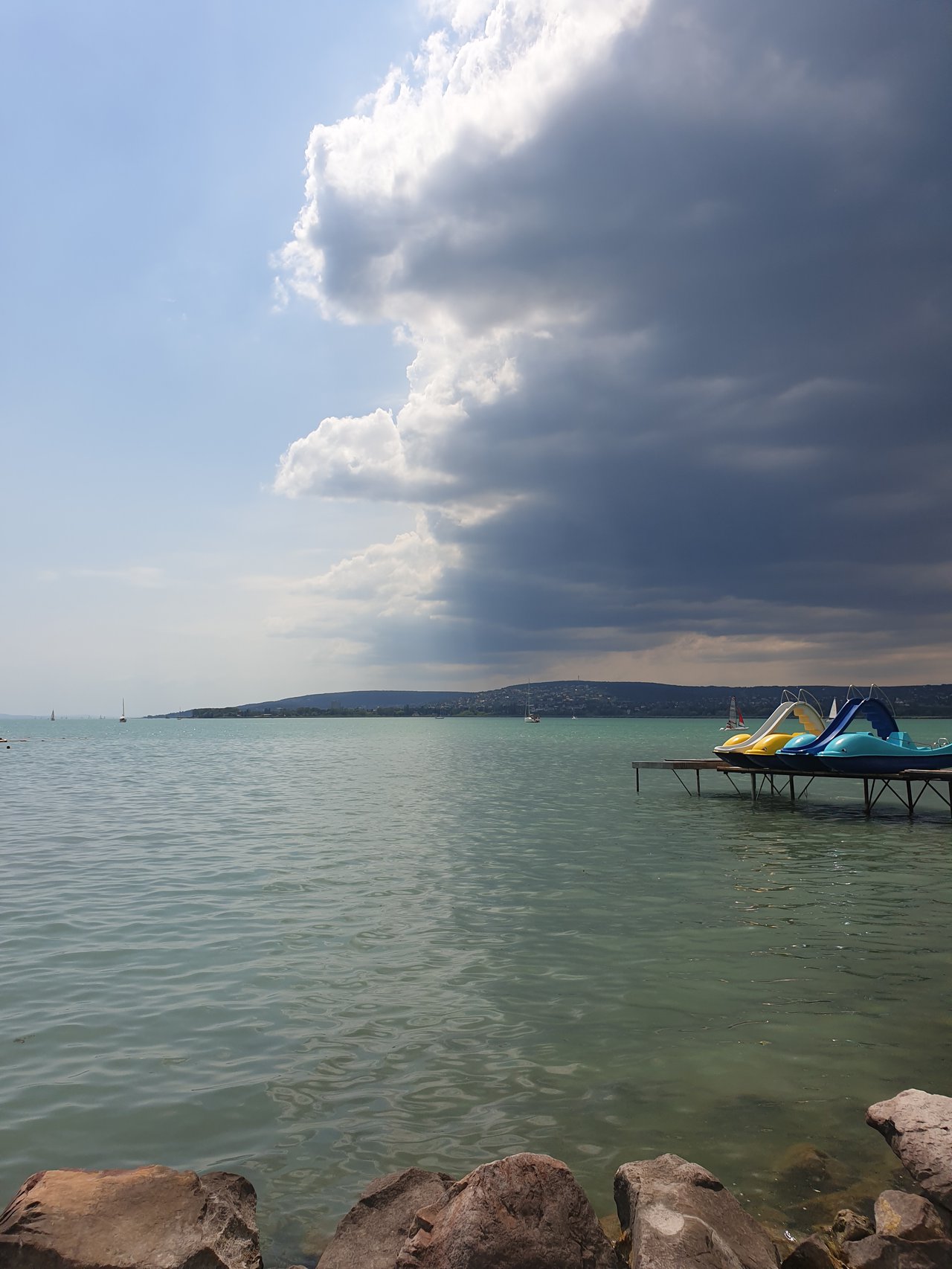
The last week is filled with final errands. Closing the Hungarian bank account, spending the remaining money or exchanging it for euros, cleaning the flat.
On my last day at work, I am at Lake Balaton. With my colleagues and a few clients, we went to the beach and enjoyed the sun for two days, cooked together and laughed.
Saying goodbye to my colleagues is strange and melancholic. I have to catch my earlier train back to the capital, so I say goodbye on the beach with my backpack already on my shoulder. So many hugs, so much warmth and so many tears. And the promise of a reunion soon. On the train I look out of the window, Lake Balaton passes by with its eternal blue until it is replaced by endless fields of sunflowers. The last weekend lies ahead of me and I will spend it packing. I leave with so much more than I arrived with. And now I have to squeeze all these things together and put them away, in a suitcase, in bags and in my heart.
And then it's here, the last day of 334 days. Eleven months in Hungary, eleven months of voluntary social service in a country I have grown to love.
The last bag is stowed in the car and I pull the car door shut. With every kilometre I leave the lights of Budapest behind me and follow the taillights of all the other cars back to Munich.
What am I left with now? Apart from the three new tattoos done by Nici in our room. They remind me of a city in which I feel a bit at home, which has welcomed me and given me insight into the life of the people of Budapest.
They remind me of the little children’s laughter on movie night in Kalunba.
They remind me of all the dear people I met, whose friendship I can take with me into the future.
And just like the black ink of the tattoos under my skin, I carry all these memories and experiences inside me, and they give me the confidence to discover new lights every day.
Köszönöm és viszontlátásra Budapest!
Read more about the Refugee Ministry
The Refugee Ministry of the Reformed Church in Hungary is organized under the Unit for Refugee Integration, which is part of the RCH’s Diaconal Office and works with Kalunba Social Services Nonprofit Ltd. as implementing partner. Get to know our vision, strategy, organisation, structures, cooperations and read the latest news.